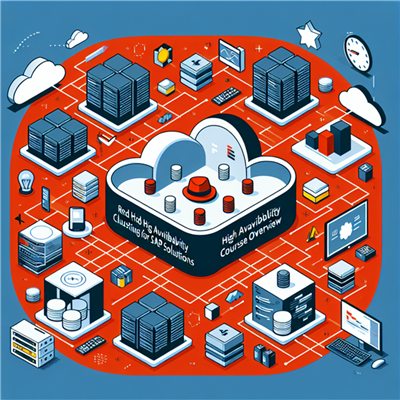
Oracle Database is one of the most widely used relational database management systems, powering applications across industries for its scalability, reliability, and performance. Setting up a well-organized Oracle development environment is essential for developers to build, test, and deploy database applications effectively. Whether you’re a beginner or an experienced developer, having the right tools and configurations in place ensures smooth workflows and better productivity.
This guide walks you through the process of setting up an Oracle development environment, from installing the database to choosing the right tools and following best practices.
Why Is a Proper Development Environment Important?
An optimized development environment is key to effective Oracle development for several reasons:
- Enhanced Productivity: Proper tools and configurations reduce time spent troubleshooting.
- Minimized Errors: Well-structured environments support error detection and debugging.
- Scalability: A robust setup grows alongside your project needs.
- Collaboration: A consistent development environment improves teamwork on shared projects.
Prerequisites for Setting Up Oracle Development
Before starting the setup process, ensure the following requirements are met:
- Hardware Requirements: Your system should have at least 8GB of RAM, 100GB of free storage, and a 64-bit operating system.
- Database Knowledge: Familiarity with SQL, PL/SQL, and database management concepts is highly recommended.
- Administrative Rights: Ensure you have sufficient permissions to install software on your machine.
Step 1: Installing Oracle Database
The Oracle Database forms the foundation of your development environment. Follow these steps to install it:
1.1 Select the Right Database Version
Choose an Oracle Database version compatible with your operating system and project needs. Commonly used versions include Oracle Database 19c and Oracle Database 21c.
1.2 Installation Process
Run the installer and follow the prompts to complete the installation. During setup:
- Configure the database instance with appropriate memory allocation and character set options.
- Set a secure password for administrative accounts like SYS and SYSTEM.
1.3 Verifying Installation
After installation, use Oracle SQL*Plus to verify that the database is running properly. Execute basic queries to test the setup and ensure connectivity.
Step 2: Essential Tools for Oracle Development
2.1 Oracle SQL Developer
A free, integrated development environment (IDE) for working with SQL and PL/SQL. SQL Developer simplifies query writing, debugging, and database management.
2.2 Oracle APEX
A low-code platform designed for building scalable web applications. APEX is ideal for developers seeking rapid application development without extensive coding.
2.3 Oracle SQL*Plus
A command-line interface for executing SQL and PL/SQL scripts. SQL*Plus is lightweight and essential for quick database management tasks.
2.4 Oracle REST Data Services (ORDS)
Enables the development of RESTful APIs to interact with the Oracle Database, facilitating modern application architectures.
2.5 Text Editors and IDEs
While Oracle SQL Developer is comprehensive, additional text editors like Visual Studio Code or Sublime Text can enhance productivity when working on scripts.
Step 3: Configuring Your Environment
3.1 Database Connections
Set up secure and efficient database connections. Use tools like Oracle Net Configuration Assistant to create and manage connection strings.
3.2 Optimizing IDE Settings
Customize IDE preferences such as syntax highlighting, code formatting, and keyboard shortcuts to suit your workflow.
3.3 Setting Up Backup and Version Control
- Implement a version control system like Git to manage changes to scripts and configurations.
- Use Oracle Recovery Manager (RMAN) for regular database backups to prevent data loss.
Step 4: Best Practices for Oracle Development
- Optimize Queries: Use tools like EXPLAIN PLAN to analyze and improve query performance.
- Adopt Naming Conventions: Consistent naming of database objects aids maintainability.
- Secure the Environment: Use role-based access control (RBAC) and encryption where necessary.
- Regularly Test Code: Test your SQL and PL/SQL scripts in a development environment before deploying them.
- Stay Updated: Ensure your database and tools are regularly updated to leverage the latest features and security patches.
Troubleshooting Common Issues
Connectivity Problems
Check your listener configuration and ensure your firewall settings allow database connections.
Slow Query Performance
Analyze indexes, optimize query logic, and eliminate redundant operations for better performance.
Tool Compatibility
Verify that the tools you are using are compatible with your Oracle Database version and operating system.
Conclusion
Setting up an Oracle development environment is a foundational step for efficient database development. By installing the right tools, configuring your environment thoughtfully, and adhering to best practices, you can significantly enhance productivity and minimize issues.
A properly configured environment not only supports smooth project workflows but also prepares you for scalable, secure, and high-performance database solutions. Whether you're developing locally or leveraging cloud-based Oracle solutions, investing time in your setup will pay off in the long run.
While these tips and tools can be helpful, nothing beats proper training. Koenig Solutions is a leading IT training company that offers certifications in top technology courses. Their Oracle Development training courses are designed to give you the skills needed to set up your Oracle Development Environment effectively.
With a blend of practical and theoretical training, Koenig Solutions ensures that you not only understand how to set up your development environment but also how to handle real-world scenarios.
Begin your Oracle development journey with confidence, armed with the tools and tips outlined here!







COMMENT